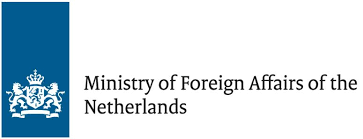Community / Land projects / Transforming Eastern Province through Adaptation (Trepa)
Transforming Eastern Province through Adaptation (Trepa)

€0
05/22 - 12/27
Activo
This project is part of
Implementing Organisations
Donors
Data Providers
General
Climate projections show that climate change will have an increasingly serious effect on the Eastern Province in Rwanda, largely as a result of rising temperatures and changing patterns of precipitation. The mean rainfall is predicted to increase by between 0.1 and 1.24 mm per year, except during the short rainy season (Mid-September -Mid-December), showing a marked decline of between 0.412 and 1.65 mm per year. Temperatures in the Province have already increased 2.6 °C over 1961-201610 and are projected to increase a further 2.5 °C by 205011, up from the 1970 average.Temperature rise will increase evapotranspiration, resulting in increased crop water requirements and reduced soil moisture capacity. A study from ICRAF using the CGIAR CSI model for projection of the Soil Moisture Index estimated decrease in evaporation and increase in evapotranspiration by 2050 which will begin crossing critical thresholds in crop tolerance.12The combination of increased temperatures for longer periods and decreased rainfall especially in the short rainy season, makes the Eastern Province highly exposed to more dry spells with up to 7 days by 2050 The project will be implemented through three Executing Entities (Rwanda Forestry Authority, enABEL and IUCN through its Rwanda country office). In the EE role the IUCN Rwanda country office functions as an in-country entity based on its host country agreement on project management, member and advisory services The project’s objective is: to achieve a paradigm shift in land management practices in Rwanda’s Eastern Province from landscapes that are degraded, fragile and unable to sustain livelihoods in the face of climate change to restored ecosystems and landscapes through building community resilience to enhance livelihoods, food and water security of the most vulnerable rural population. Cordaid is tasked to enhance financial nclusion and investments in climate resilient value chains for climate resilient agricultural and tree products.
Objectives
Cordaid's objective it to enhance financial inclusion and investments in climate resilient value chains for climate resilient agricultural and tree products.
Target Groups
Members of groups (formal and informal) involved in the green activities such as agroforestry and selected value chains such as Maize and Beans



